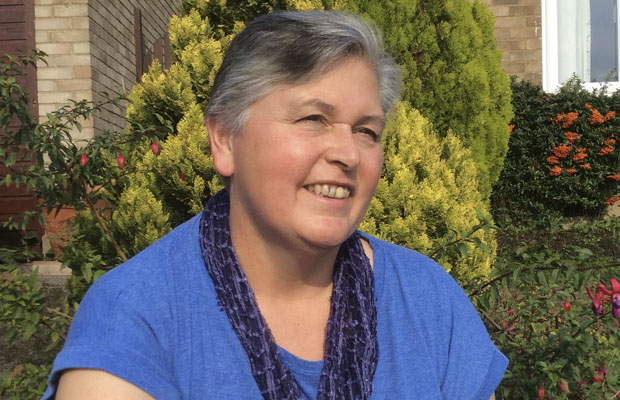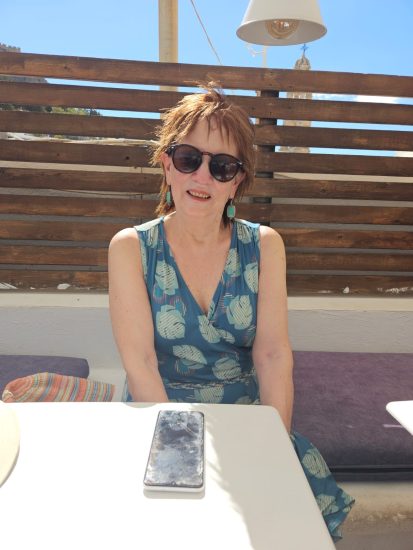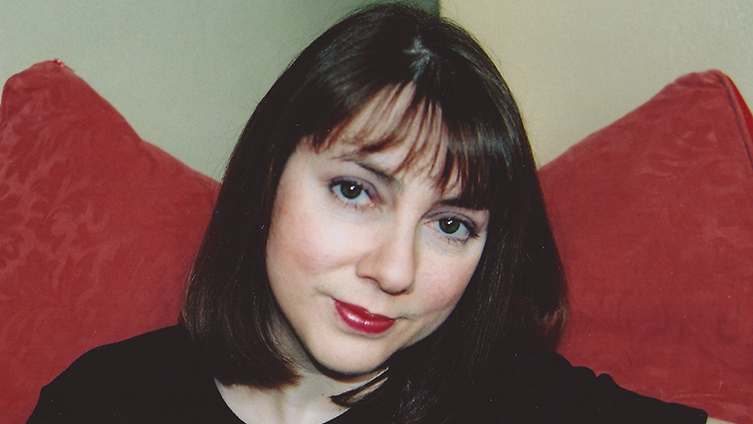
We’re delighted to have author Linda Priestley as our Writer Of The Week this week.
Linda’s Pocket Novel, “Rosie’s War”, is out later this week.
How did you get into writing? Have you juggled it with other careers?
I remember writing short stories as a child in junior school, so I have always written. But it’s not a career, more a paying hobby. It’s very difficult to make a living from writing fiction because there is a limited market.
I wrote science fiction short stories at university; they were all rejected except one . . . but the magazine went bust before it was published.
I was too busy after that — until about fifteen years ago, when I had an idea for a novel, and had the time to realise a long-held ambition.
Whilst waiting for my then-agent to try to find a home for “Death in Spigg’s Wood”, I turned to writing short stories, and was lucky enough to have a number published by “The People’s Friend”.
The short stories are very different from my crime novels. But they are a good discipline, because you are writing to a word count. Every word matters.
Your pocket novel, “Rosie’s War”, is published this Thursday, 22 August. Tell us about it.
“Rosie’s War” follows our heroine from being a naive country girl on the eve of World War Two, through the war years and afterwards, and her (at times) turbulent love life.
I used to garden for a lady who had served in the Women’s Land Army, and she inspired me to write this Pocket Novel.
Is this your first pocket novel?
I had a Pocket Novel called “Charlie’s War” published a few years ago by “My Weekly” magazine. My short stories have been published in “The People’s Friend” and “My Weekly”, and I have several crime novels on Kindle. I also have a couple of romances on Kindle and in Large Print, writing as Linda M Priestley.
Recently my crime novel, “Blood Will Out”, was published by Williams & Whiting.
Do you prefer writing historical novels?
I write where the inspiration takes me, rather than limit myself to historical fiction.
This pocket novel hardly seems historical, being within living memory, though I suppose it is. The research was enjoyable, because it’s so easy nowadays with the internet.
It was fascinating, and inspiring, because although I had an outline set of ideas, the story grew with the research.
I have written another historical novel, “Gladiatrix”, published on Kindle, about a female gladiator in the early second century. It’s set in Colchester, near where I live.
I have always had a fascination with the Roman era, after reading “Eagle of the Ninth” as a child.
My crime novels and romances tend to be set in the modern day.
Are you a member of a writing group, online or otherwise?
I’m a member of online writing groups, and a small, select one in real life.
One online group of writing friends has been a real support to me over the years. Being a writer can be very lonely and demoralising, especially when the inevitable rejections happen.
More experienced writers can help show you where you’re going wrong, and I would not be the writer I am today were it not for these dear friends.
I have also been a member of a real life group of half a dozen writers hosted by Elizabeth Lord, who writes now as Maggie Ford. This has been invaluable over the years. And helped me become Writer Of The Week, obviously!
Are you disciplined about your writing? Do you write for a set amount of time every day?
No, I’m not disciplined over my writing. Quite the reverse!
I tend to do the physical writing sporadically but obsessively, though I am often writing in my head when doing chores. By the time the short story or novel spills out of my brain, it’s almost fully formed, and I feel I have to get it all down, immediately, in case it vanishes.
This is fine for a short story, but not so good with a novel! I write notes to myself about what happens next, otherwise I would never sleep.
The more disciplined part comes with editing, then editing again.
When you have a story ready to be submitted, do you let anyone read over it first for their opinion? Whose opinion would you trust most?
I have taken to leaving any newly written short story for a while, because when I come back to it, all sorts of issues become apparent, and I can tighten it up considerably. I can also spot typos more easily after a break. It’s important to present as clean a manuscript as possible.
I read out my short stories at the small, real-life writing group. Just reading aloud can reveal problems, and the feedback from my friends is invaluable — partly because they are experienced and talented, and partly because they don’t hold back if something is wrong.
Any favourite authors?
I have lots of favourite authors. For comfort reads, my favourite is Mary Stewart. I also like Jean Auel, Anne McCaffrey, PD James, Jill Mansell, Nicola Slade, Sally Zigmond, to name but a few.
What I read depends what mood I’m in, and my tastes have changed over the years.
Notebook and pencil, or laptop? Kitchen table or study? Blank wall, or inspiring view?
I am privileged enough to have a study of my own, though I used to share a study with my husband until my eldest daughter left home.
Her bed was hardly cold before I pinched her bedroom as a study, because sharing a study with a man who works from home was becoming . . . well, let’s say, trying at times, for both of us.
I only use a notebook for brief ideas so I remember them. When I was observing in Court for my crime novels, I was told off for taking notes!
And a P.S. — what’s your one top tip for aspiring pocket novel writers? Or a future “Friend” Writer Of The Week?
Read pocket novels to get the sense of what is expected.
It doesn’t matter how good the plot is, nor how well written, if it’s not suitable for “The People’s Friend” Pocket Novel readers, then it’s unlikely to be accepted.
For more of our Writer Of The Week series, click the tag below.
Subscribe to “The People’s Friend” Pocket Novels today, and you’ll only pay £5 for your first six issues. That’s a saving of over £65. Click here for more details.




